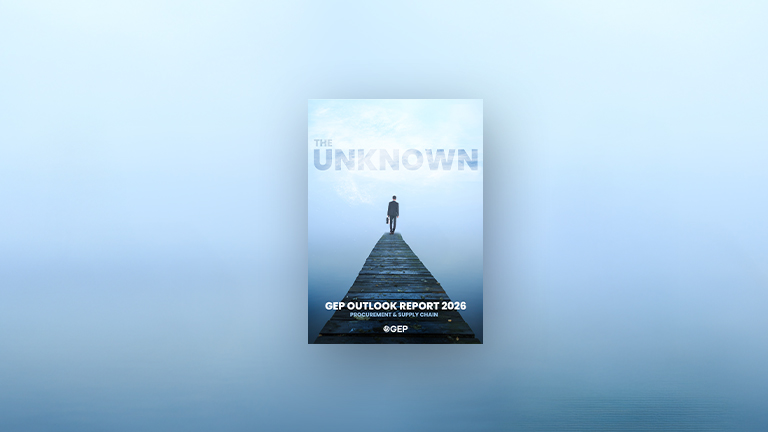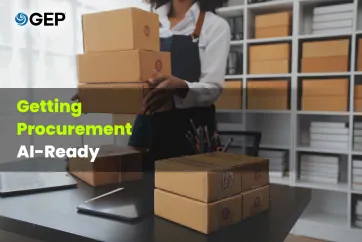
Agentic AI Is Reshaping Procurement Teams. Are You Ready?
- AI is redefining how procurement teams work.
- With technology taking care of routine tasks, the human workforce can focus on strategic and value-adding work.
- This also means that teams need to learn new skills and do away with traditional ways of thinking.
July 15, 2025 | Procurement Software 3 minutes read
Procurement teams in many businesses are already looking different. And they are working differently, too. What exactly has changed?
The structure of the team, the role of the workforce, the skillset requirement—everything in short.
Artificial intelligence is upending the routine duties of procurement professionals. But agentic AI is doing more than automating tasks. It is changing how procurement teams work, what skills they need, and how they create value.
Agentic AI systems work, adapt over time, and make decisions based on context. This shift is already altering the makeup of procurement teams.
“Consider AI agents as your teammates,” says Rakhi Mullick, vice president of digital transformation at GEP. “They are not here to replace procurement. They help you focus more on strategic work and less on routine tasks.”
Still Struggling with Routine Procurement Tasks?
Learn how AI can automate these tasks and free your workforce for strategic work
Trust AI with Routine Jobs
AI agents are already doing jobs like contract drafting, quote validation, and invoice checking. They can process documents, find errors, and trigger workflows. They do this faster than people and with fewer mistakes. As a result, many manual roles are becoming less important.
At the same time, new roles are emerging. Teams need people who can manage AI workflows, write clear prompts, and understand AI output. These are not traditional procurement jobs. They require new thinking and different skills. In fact, 64% of procurement leaders believe AI and Gen AI will transform their roles within five years, suggests a recent study.
What Skills Matter Now
To work well with AI, procurement professionals must build new capabilities. Mullick believes leaders should not treat AI as a one-time tool. “It is a capability that redefines how procurement creates value,” she explains.
Key skills include:
• Understanding AI
Teams must know how agents work and what data they need.
• Data skills
People should know how to read and interpret structured and unstructured data.
• Creative problem solving
AI lets teams reimagine workflows. This requires new ways of thinking.
While all these skills are new, they do not necessarily require formal training. Vlad Brincoveanu, senior manager of digital transformation at GEP, insists that learning by doing is important. “You don’t need to be a data scientist,” he says. “But you should start using AI now. Ask questions. Try things out. That is how you build skill and confidence.”
101 Top AI Use Cases in Procurement
Tested, proven and emerging applications of AI in procurement
The Changing Structure of Procurement Teams
As the use of agentic AI becomes more common, procurement teams will look different. With AI agents handling tasks like data entry, quote review, and PO tracking, people will spend more time working with business partners and suppliers. They will focus on strategy and relationships.
“We are already seeing the pyramid flip,” says Brincoveanu. “Procurement will do less back-office work and more front-line engagement. That is where human skills matter most.”
This also means hiring will change. Teams may hire fewer transactional buyers. Instead, they will look for people with digital fluency, strong communication skills, and the ability to manage AI-supported processes.
Organizations will also need both broad upskilling and focused expertise. A center of excellence model can help. This model brings AI experts together to support the wider team and drive adoption.
Start Small, Show Value
One of the biggest lessons from GEP’s work with clients is to kick things off with a small manageable project. “How you start matters,” says Brincoveanu. “Pick a few use cases that deliver clear value. That makes it easier to get support and funding for the next steps.”
He points to a real example. A consumer electronics company used an AI agent to validate purchase requisitions (PR). The agent matched PRs to quotes and checked for errors. It did the job with 96% accuracy. That success helped the client expand its AI program.
Mullick emphasizes the need for a culture of experimentation. “Create space for learning. Reward curiosity,” she says. “This is not a small shift. It is a complete change in how we work.”
One thing is clear. Teams that embrace this change and learn how to work alongside AI systems will succeed. They will define a new operating model for procurement – one that is less transactional and more strategic.



